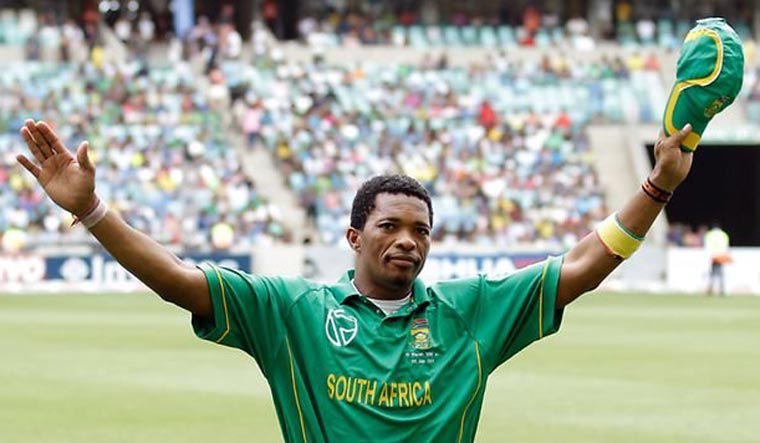When South Africa (RSA) took on India in Calcutta on November 10, 1991, it was an international hiatus of 21 years. For those who don't know why, the much-told story goes like this: South Africa became a pariah on the international stage following the suspension imposed on it by the International Cricket Council (ICC) over the "apartheid". South Africa's apartheid policies enforced racial segregation and prohibited non-white players from representing the national team. It was too much for the ICC to not act upon, and the suspension was imposed.
Makhaya Ntini's legacy is thus special for Cricket South Africa. He was the first black player to play an international game for the Rainbow Country. The 46-year-old was a popular face in the Gareme Smith-led South African lineup of this century's early decade. He played alongside some of the game's greatest talents including Jacques Kallis, Shaun Pollock, Mark Boucher and Herschelle Gibbs amongst others.
In a squad full of icons, Makhaya Ntini was not a pushover himself and holds the record of being the third most successful Test bowler (390 wickets) for his country -- only behind Dale Steyn Pollock. In ODIs, only Allan Donald, Pollock and Kallis are ahead of his tally of 265 dismissals.
However, all was not well for the right-arm fast bowler inside the Proteas dressing room, Thando Ntini, Makhaya's son reportedly claimed. Makhaya felt often left out by his white teammates and the 46-year-old kept his mouth closed on purpose.
23-year-old Thando Ntini reportedly claimed in a podcast that his father is concerned for his career and wishes not to upset anyone in the hierarchy by spilling ugly stories. His former teammates are still in the cricket setup and Ntini is worried that Thando's career could be hampered if he decided to speak up.
“When he speaks to me he’s just like ‘I keep quiet to protect you so that you can have a long lasting career and I want you to have a smooth career and you make your own mistakes,” Thando reportedly told Load Shed Podcast.
“Post cricket, he doesn’t speak about it. He doesn’t want to create a hostile environment for me in the industry because of the stuff that he says. At the end of the day most of the coaches in our system have either played with him or the ex-players or whatever,” Thando was quoted as adding.
According to Ntini Junior, in his father's words, his international career "was constantly fighting for his life." Due to the racial divide, he was often left out of dinner plans by his teammates. The white players made outing plans in front of him but never asked him to tag along. They never visited him at his residence either.
“A couple of years back he (Makhaya) actually spoke out he just felt like he was constantly fighting for his life. The only guy there you know I understand he probably felt lonely. It sucks to hear him when he can count with his hands how many times he was invited to a dinner with the gents,” Thando said.
“You know when you go on tour and when you arrive you make plans about ‘okay guys we’re going to go to a certain place for dinner’, you are keen (but) he never had someone knock at his door and be like ‘You keen to join us for dinner?’ So it just felt like for him it was always survival mode and just trying to create a future for himself and his family,” Thando, who is also a seamer like his father, added.


